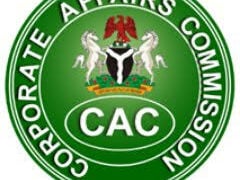Organised Private Sector (OPS) has set up a misinformation tracker to tackle fake news and misinformation to reduce the closure of businesses in Nigeria.
Aware of how misinformation and fake news have become increasingly visible global occurrences based on availability of smartphones and social media networks, hence, setting up a misinformation tracking team.
The stakeholders, in unanimous decision, noted that digitalisation coupled with smartphones and social media have further compounded the spread of fake news and dis/misinformation.
They seek for compulsory code of ethics or launch legal action against companies breaching the code, and for business setups to have standby mechanisms to promptly tackle and nip in the bud any misinformation or fake news that could spring forth from any quarter.
The group, identifying Dangote Group, especially, the refinery unit as the most affected with misinformation, commended the media team of Dangote Group for prompt responses to tackling misinformation or fake news that confronted Dangote Group of companies.
The team set by NECA was in conjunction with the Centre for International Private Enterprise (CIPE) commissioned a consultant, International Press Centre (IPC) and media houses to carry out an assessment on the behaviour of Disinformation in Nigeria through Tracking, Monitoring and Desk Research.
Speaking during the event in Lagos, the director general, Adewale-Smith Oyerinde, while declaring the commissioning open said, the risk of losing more businesses at the critical time like this made the OPS setup ways to mitigate against fake and misinformation.
Presenting the report to the coalition group, the editor of the Nigerian Democratic Report International Free Centre, Ayo Aluko-Olokun, said the findings show that thriving businesses, particularly, the manufacturing and banking sectors suffer misinformation the most, with Dangote group being the highest mentioned with 17.8 per cent, followed by Polaris Bank with 11.1 per cent, Opay Nigeria with 11.1 per cent, UBA 6.7 per cent and First Bank 4.4 per cent.
“For services and communication sectors, including Samsung, (6.7%), MTN (4.4%), Azmann Air, Dana Air, and 7up (each at 4.4 %) were also more affected.
“Others were Microsoft (2.2%), Arise Tv (2.2%) Air Paece (2.2%), Unity Bank (2.2%), Fidelity Bank, (2.2%), Keystone bank (2.2%) and power distribution company (2.2%),” the report revealed.
Also, the report showed that, false information about businesses trended most on social media, particularly on Facebook with more than one quarter 26.5 per cent of false content track. It says, so far, online media followed with 16.3 percent X 10.2 per cent; WhatsApp has 8.2 per cent and TickTok 4.1 per cent. Other less significant media sources, he said, represented 28.6 per cent
The exercise started with the setup of a fact checking team for five months beginning from May 1, 2024.
Presenting its reports, the team of Fact checkers on Dis/misinformation of Nigerian Businesses in Lagos, presented the first phase of their report on tracker, monitoring and desk research on disinformation in Nigeria.
Reiterating their claim that fake news and misinformation are doing more harm than good to the already fragile society which is battling to tame hardship, they noted that drastic steps should be taken to prevent more harm to individuals and corporate bodies.










